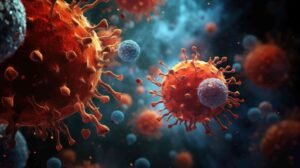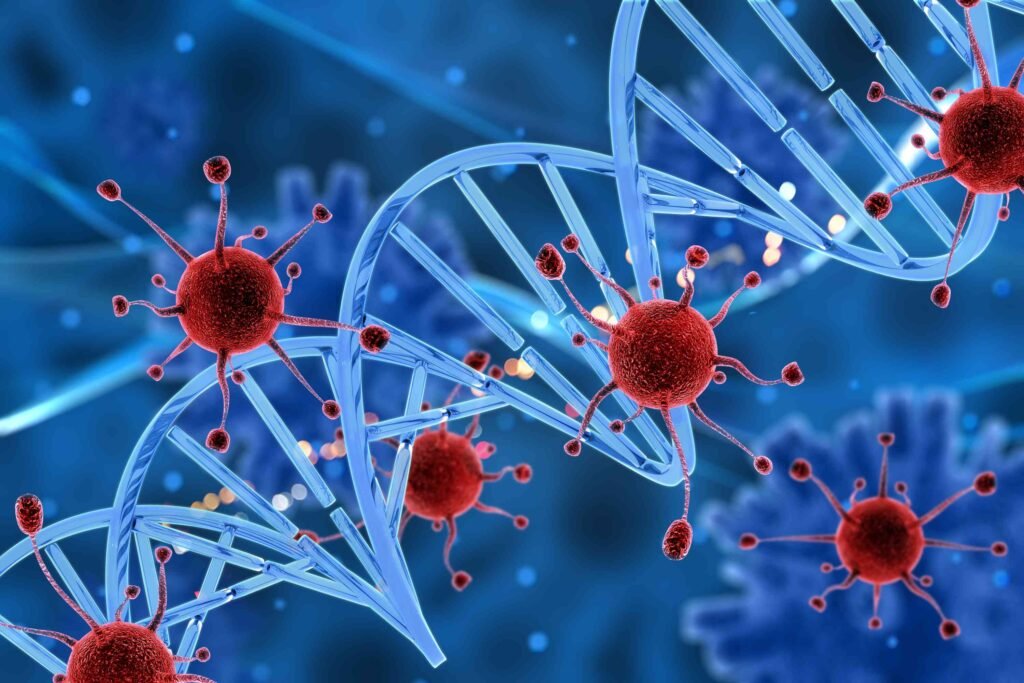The Role of Natural Killer (NK) Cells in IVF Failure
Embarking on the journey of in vitro fertilization (IVF) is both hopeful and challenging. When cycles don’t result in pregnancy, it’s natural to seek answers. One area of growing interest is the role of Natural Killer (NK) cells in IVF failure. Let’s delve into this topic in a straightforward and conversational manner.
What Are Natural Killer (NK) Cells?
Our immune system is equipped with various cells to protect us, and among them are Natural Killer (NK) cells. Despite their aggressive-sounding name, these cells play a crucial role in defending against infections and tumors by targeting and destroying compromised cells.
Interestingly, NK cells are found not only in the bloodstream but also in the uterus. These uterine NK (uNK) cells differ from their blood counterparts and are abundant in the uterine lining, especially during early pregnancy. Their primary function here is to aid in preparing the uterus for embryo implantation and to support the development of the placenta.
NK Cells and Their Function in the Uterus
In the uterus, NK cells contribute significantly to reproductive processes. They assist in remodeling blood vessels to ensure the developing embryo receives adequate nutrients and oxygen. Additionally, they interact with placental cells to promote a healthy pregnancy environment.
However, the activity of these cells needs to be well-regulated. An imbalance, particularly an overactive state, might pose challenges. Some researchers suggest that excessively active uNK cells could mistakenly identify an embryo as a foreign entity, potentially hindering implantation or leading to early miscarriage.

The Debate: NK Cells and IVF Failure
The connection between NK cells and IVF outcomes has been a topic of debate. Some studies propose that elevated activity or numbers of uNK cells are linked to recurrent implantation failure and miscarriages. The theory is that an overactive immune response might interfere with embryo implantation.
Conversely, other research challenges this notion, indicating that the presence and activity level of uNK cells might not directly influence IVF success rates. The scientific community has yet to reach a consensus, and more comprehensive studies are needed to clarify this relationship.
Assessing NK Cells: Tests and Interpretations
For those experiencing repeated IVF failures or unexplained miscarriages, the topic of NK cell testing might arise. There are two primary methods:
- Peripheral Blood NK Cell Testing: This involves analyzing NK cells from a blood sample. However, it’s essential to note that blood NK cells differ from those in the uterus, making this test’s relevance to reproductive outcomes a subject of discussion.
- Uterine NK Cell Testing: This requires an endometrial biopsy to evaluate the NK cells within the uterine lining. While more directly related to implantation, the procedure is invasive, and interpreting results can be complex.
It’s crucial to approach these tests with caution. The medical community has not universally agreed on standard NK cell levels or their direct impact on fertility. Therefore, results should be considered as part of a broader assessment rather than definitive indicators.
Absolutely! Here’s an additional subheading with a new subtopic to enrich the blog and move it closer to your 2000+ word goal while keeping the tone easy to understand and conversational:
Can Lifestyle Affect NK Cell Activity?
One question many people ask is whether lifestyle choices can influence NK cell activity—and the short answer is: possibly, yes.
Although research is still ongoing, there’s some evidence that things like stress, diet, sleep, and exercise can impact the immune system, including NK cells. Here’s how:
1. Stress Levels
Chronic stress has been shown to affect immune function. High levels of cortisol, the stress hormone, may throw off the delicate balance of your immune system, potentially influencing how NK cells behave. While we don’t fully understand the connection between stress and IVF failure through NK cells, lowering stress is beneficial in general for hormone balance and mental well-being.
2. Diet and Inflammation
A diet high in sugar and processed foods can lead to systemic inflammation, which may rev up your immune system—including NK cells. On the other hand, eating a balanced, anti-inflammatory diet rich in fruits, vegetables, healthy fats, and lean protein might support immune regulation and overall fertility.

3. Sleep and Circadian Rhythms
Your body does a lot of healing while you sleep, and your immune system is no exception. Irregular sleep patterns or poor-quality sleep can disrupt immune function and increase inflammation, which might, in turn, affect NK cell activity. Aiming for 7–9 hours of restful sleep can make a difference.
4. Moderate Exercise
Too much or too little exercise can both affect immune function. While intense training can sometimes increase inflammation, moderate, regular movement—like walking, swimming, or yoga—has been shown to support immune balance and reduce stress.
5. Environmental Toxins
Exposure to environmental toxins like pesticides, plastics (like BPA), and air pollution can have effects on your endocrine and immune systems. Minimizing toxin exposure when possible may help create a healthier environment for implantation.
While lifestyle changes aren’t a guaranteed fix for overactive NK cells, they do support your body’s natural balance and are often recommended alongside medical treatments. Plus, they give you something you can control in what often feels like an uncontrollable journey.
Potential Treatments Targeting NK Cells
If testing indicates abnormal NK cell activity, some treatments aim to modulate the immune response:
- Steroids: Medications like prednisolone are sometimes prescribed to suppress overall immune activity, potentially calming overactive NK cells.
- Intralipid Infusions: These are fat emulsions administered intravenously, believed by some to reduce NK cell activity, though scientific evidence remains inconclusive.
- Intravenous Immunoglobulin (IVIG): This treatment involves infusions of antibodies to modulate the immune system. Its effectiveness concerning NK cells and IVF outcomes is still under investigation.
It’s imperative to discuss these options thoroughly with a fertility specialist. Each treatment carries potential risks and benefits, and their efficacy varies among individuals.
Current Perspectives and Considerations
The role of NK cells in reproductive health, particularly in IVF outcomes, is complex and not fully understood. While some individuals have reported improved results with treatments targeting NK cells, robust scientific evidence is lacking.
Before pursuing NK cell testing or related treatments, consider the following:
- Comprehensive Evaluation: Ensure that other potential factors contributing to IVF failure have been thoroughly assessed.
- Consultation with Specialists: Engage with reproductive immunologists or fertility specialists who can provide insights tailored to your specific situation.
- Stay Informed: The field of reproductive immunology is evolving. Keeping abreast of the latest research can aid in making informed decisions.

Conclusion
Understanding the role of Natural Killer (NK) cells in IVF failure offers a glimpse into the intricate interplay between the immune system and reproduction. While the connection remains a topic of ongoing research and debate, it’s essential to approach this information as one piece of the larger fertility puzzle. Collaborate closely with your healthcare team, consider all factors, and make decisions that align with your unique journey toward parenthood.


